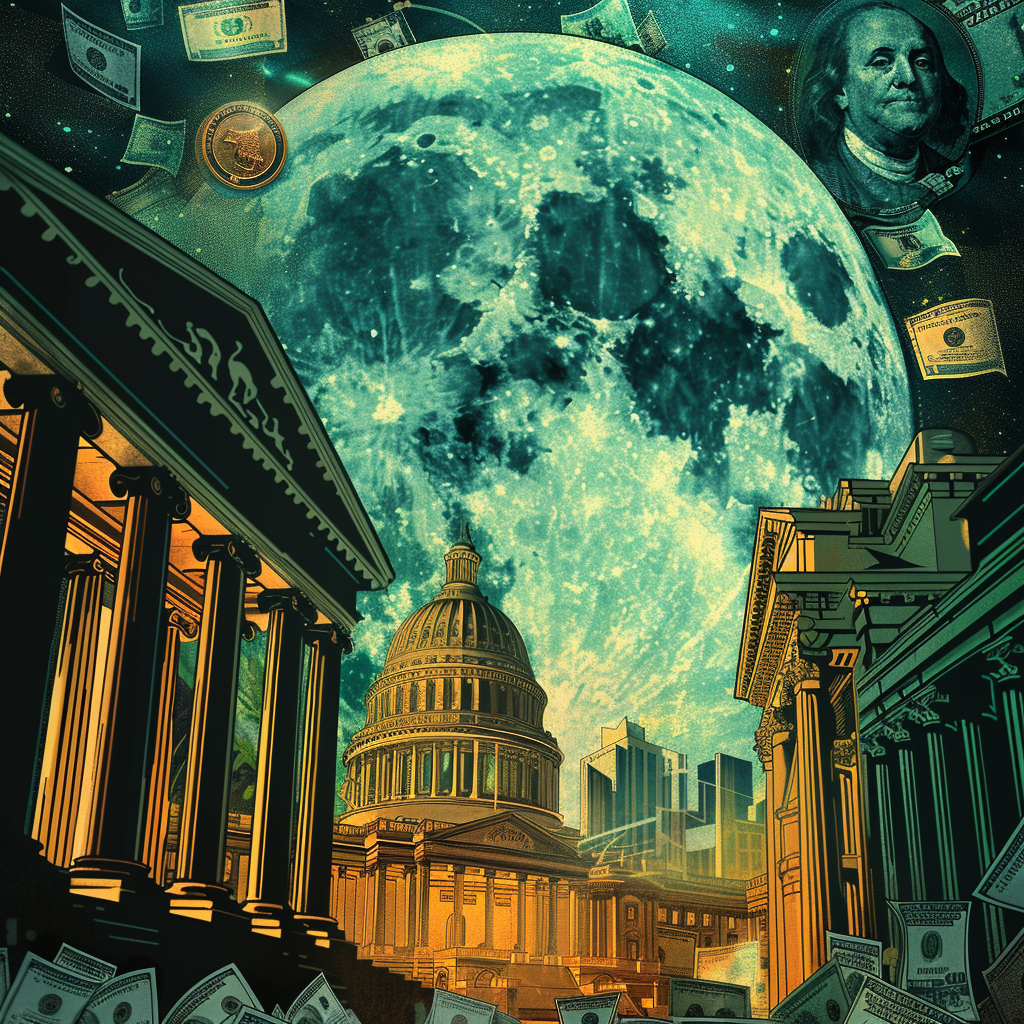Monetary policy is the process by which a central bank regulates interest rates and the quantity of money to achieve economic objectives. Open market operations, proactivity, and policy credibility are important, and effective policy management requires a balance between prescriptivism and discretion.
The role and importance of monetary policy
Monetary policy is the adjustment of interest rates or the quantity of money by a central bank to achieve economic objectives such as price stability. It has a significant impact on the economy as a whole and plays an essential role in promoting the stability and growth of a country’s economy. A typical monetary policy tool, open market operations, involves the central bank buying and selling bonds from private financial institutions to move interest rates in the financial markets closer to a policy-determined benchmark interest rate level. When the central bank buys bonds, interest rates fall, and when it sells bonds, interest rates rise. When interest rates fall, consumption and investment expand, stimulating the economy and raising inflation; when interest rates rise, the economy contracts and inflation falls. In this way, the effects of open market operations ripple through the economy.
Monetary policy is not just about adjusting interest rates; it must consider a broader range of economic impacts. For example, monetary policy also affects the unemployment rate. Lower interest rates make it less expensive for businesses to invest, which can lead to more employment, which in turn can lead to lower unemployment. Conversely, higher interest rates can increase the cost of investment for businesses and reduce employment. Thus, central banks can use monetary policy to promote not only price stability but also employment stability.
The importance of proactivity and policy credibility
Among the requirements for a central bank’s monetary policy to have the intended effect are “preemptiveness” and “policy credibility. The first is that monetary policy is proactive, meaning that the central bank anticipates economic fluctuations and responds to them in advance. However, there is a time lag between setting the benchmark interest rate and conducting open market operations and actually seeing the effects of those operations, known as the “policy external lag,” which makes preemptiveness problematic. For example, if a central bank cuts its benchmark interest rate only after the economy enters a recession, the policy effect may not be realized until after the economy has pulled itself out of the recession due to an external policy lag. This could have adverse side effects such as overheating. Therefore, it is preferable for central banks to use monetary policy proactively.
Monetary policy cannot be successful without the trust of the public, so central banks must ensure that policy credibility is not compromised. However, there is a difference of opinion on how monetary policy can gain public trust. Friedman advocates for “rulebookism,” in which central banks promise the public that they will follow certain policy objectives or modes of operation as “rules” and stick to them no matter what. For example, a central bank promises the public an inflation target. If the public trusts this promise, it calms inflation fears. But once prices have stabilized, the central bank can now consider stimulating the economy. The problem is that if the public perceives this inconsistency, it undermines trust in the central bank. Regularists argue that in such cases, it is preferable for the central bank to consistently honor its original commitment.
Central bank independence is also important for the credibility of monetary policy. If a central bank can operate independently of government or political pressure, it can contribute to greater public confidence. An independent central bank can conduct policy with the goal of long-term economic stability, which can make the economy more predictable and boost public confidence.

Prescriptivism versus discretion
However, it is difficult for the private sector to judge whether a central bank has followed the rules based on ex post results, and it is also true that it is impossible to force a central bank to follow the rules. Discretionism, in contrast to rule-of-thumb, advocates for flexible policy responses to changing economic conditions and believes that strict rule-of-thumb is difficult to implement in practice. It also raises the question of whether prescriptivism is optimal. This is because pre-determined rules can become obstacles when economic fluctuations are larger than expected. Policy credibility is important, but central banks don’t necessarily need to be bound by rules to achieve it.
Discretionists believe it is better for central banks to have the flexibility to respond as circumstances dictate. For example, in the event of an unexpected global financial crisis, a central bank may not be able to respond appropriately if it sticks to a predetermined set of rules. On the contrary, discretionary policy adjustments can be made to respond more effectively to crisis situations. Therefore, central banks need to use an appropriate mix of rules and discretion when conducting monetary policy, depending on the circumstances.
Finally, central bank policy transparency is also an important factor in building public trust. Central banks should be transparent about their policymaking process and clearly explain the background and reasons for policy changes. This allows the public to understand and trust the central bank’s policies. Policy transparency facilitates communication between the central bank and the private sector, which can ultimately contribute to greater economic stability.
 I’m a blog writer. I want to write articles that touch people’s hearts. I love Coca-Cola, coffee, reading and traveling. I hope you find happiness through my writing.
I’m a blog writer. I want to write articles that touch people’s hearts. I love Coca-Cola, coffee, reading and traveling. I hope you find happiness through my writing.